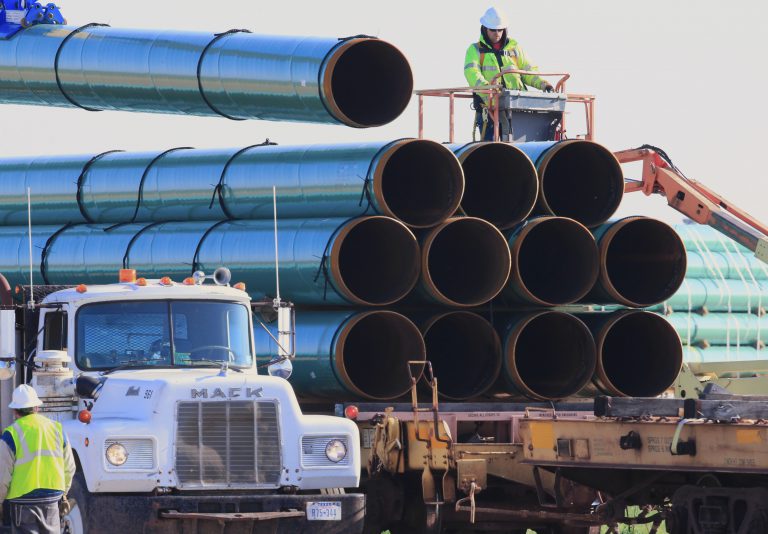WASHINGTON, D.C. — A federal judge ruled Monday that the Dakota Access Pipeline (DAPL) must be shut down by August 5 until a more extensive environmental review is conducted.
The more than 1,100-mile pipeline stretches from North Dakota to south-central Illinois, where it ends at an oil tank farm in Patoka. The pipeline was the subject of protests led by the Standing Rock Sioux Tribe throughout 2016 and 2017, who argue it could threaten sacred tribal sites and water quality in Lake Oahe, a reservoir spanning across North and South Dakota.
In 2016, the Obama administration halted production of the pipeline. But President Donald Trump allowed construction of the project to move forward, and it has been pumping oil across North Dakota, South Dakota, Iowa and Illinois since 2017.
Back in March, U.S. District Judge James Boasberg ruled that the federal government had not adequately studied the environmental effects of the pipeline. The latest order will require the U.S. Army Corps of Engineers to produce a more thorough environmental impact statement (EIS) within 13 months in order for the pipeline to reopen.
“Fearing severe environmental consequences, American Indian Tribes on nearby reservations have sought for several years to invalidate federal permits allowing the Dakota Access Pipeline to carry oil under the lake,” Boasberg wrote in Monday’s memorandum. “Today they finally achieve that goal—at least for the time being.”
Environmental groups in Illinois have also criticized the pipeline, which they say could have caused harmful environmental effects from potential leaks, particularly in agricultural areas. While the pipeline has operated in Illinois since 2017, local environmental advocates say it provides no public benefit.
“The oil that was going to be traveling through this pipeline was not going to be used in Illinois. What jobs would have been created would have been temporary,” says JC Kibbey, the Illinois Clean Energy Advocate with the Natural Resources Defense Council (NRDC). “But the risk of damage to the landscape and the lock-in of fossil fuel infrastructure that we know is not compatible with a livable planet—those impacts would have been permanent.”
He adds that pipeline leaks have also been a major concern in Illinois.
“Pipelines leak. They just do, in the same way that cars crash,” Kibbey says. “You can try to implement safety rules so that it happens less often or so it’s not as bad when it does happen, but we know that they do, and we know that this developer has a history of that. And when we look at a pipeline that’s running through and over critical bodies of water that provide drinking water for people, and some of the richest agricultural land we have here in Illinois, I think that danger is very real.”
Pipeline owner Energy Transfer released a statement on the ruling, arguing that shutting down DAPL would have a negative effect on an “already struggling economy.” The company says it will file a motion to halt the order.
Lecia Bushak is a reporter at Illinois Public Media. Follow her on Twitter @Lecia_Bushak.

